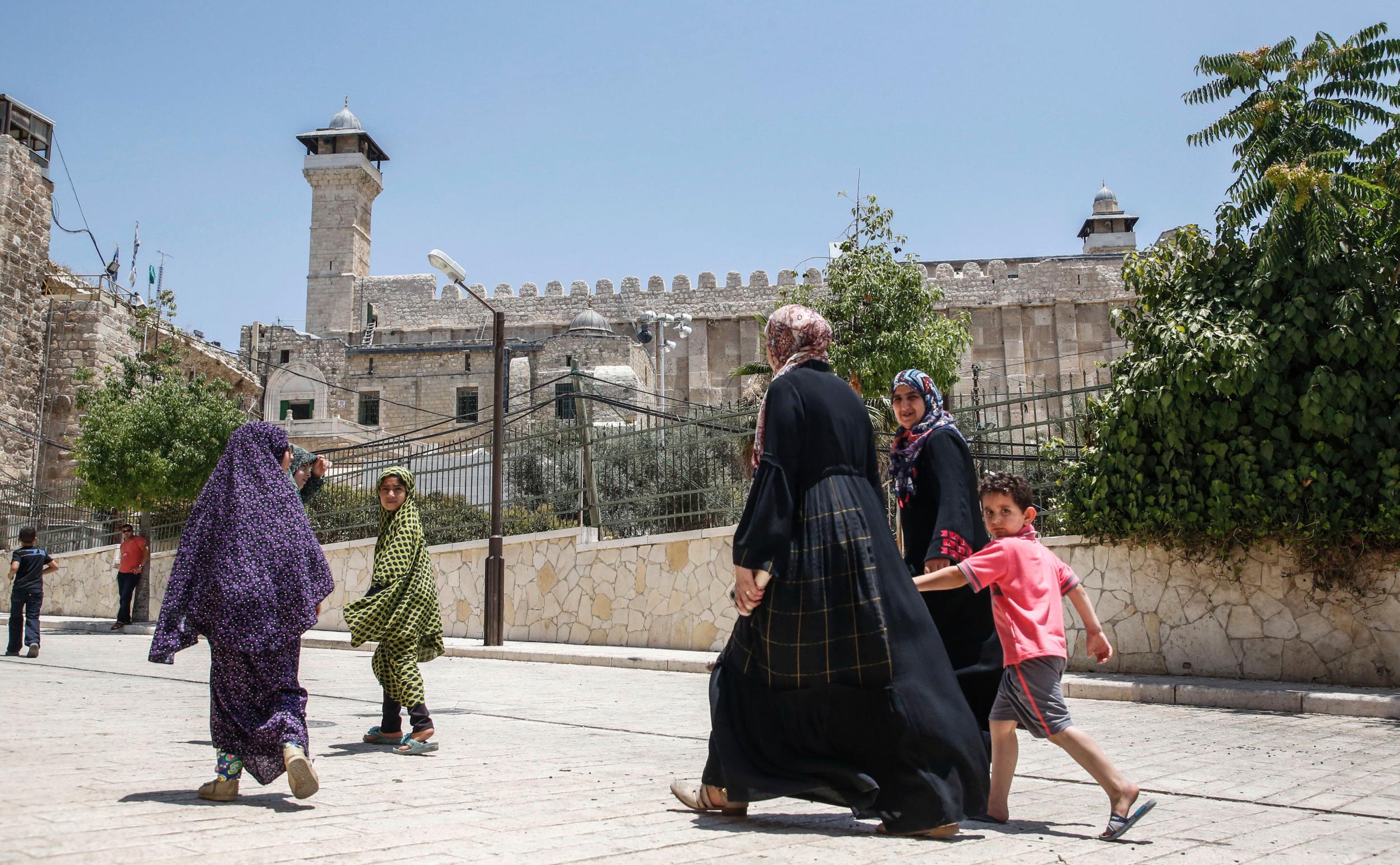UN designates Hebron tomb revered within Jewish faith as Palestinian heritage site
Shouting match ensues and Israeli ambassador storms out of Unesco meeting after decision to make vote a secret ballot

The UN’s main cultural heritage body has voted to make the West Bank city of Hebron a world heritage site, a decision which has been praised by Palestinians but drawn outrage from the Israeli authorities for ignoring the city’s Jewish history.
The Unesco board voted in a secret ballot on Friday, while six countries abstained, in favour of elevating the ancient city’s status following a proposal from Palestinian representatives.
The proposal called Hebron an “Islamic” city, leading the Israeli ambassador to Unesco, Carmel Shama-Hacohen, to storm out of the session, denouncing the choice of language for downplaying the importance of Hebron’s Tomb of the Patriarchs to the Jewish faith.

The site – known as the Ibrahimi Mosque by Muslims – is revered in both religions.
The city is regarded as the second most important site in Judaism, and one of Islam’s four holy cities. It is currently divided into two sectors – one governed by the Palestinian Authority, and one by Israel, which the international community considers an occupation.
It is unusual for Unesco to vote in secret, but Friday’s ballot was cast at the suggestion of hosts Poland, Croatia and Jamaica.
The request was immediately decried by several other states, leading to a heated argument, which only quieted down when the chair was forced to call security.
Israeli officials have slammed the decision – the second anti-Israeli resolution passed by the UN in less than a week following the World Heritage Committee decision to deny Israel’s claims to the Old City of Jerusalem.
Prime minister Benjamin Netanyahu denounced the vote as “delusional”.
“Only in places where Israel exists, like in Hebron, is freedom of worship guaranteed for all,” he said. “Everywhere else in the Middle East, mosques, churches and synagogues are being destroyed... we’ll continue to safeguard the Cave of the Patriarchs, freedom of religion and truth,” the prime minister added.
“To disassociate Israel from the burial grounds of the patriarchs and matriarchs of our nation is an ugly display of discrimination, and an act of aggression against the Jewish people,” Israel’s ambassador to the UN, Danny Damon, said.
Israeli education minister and head of the national Unesco committee, Naftali Bennett, said in a statement that “Jewish ties to Hebron are stronger than the disgraceful Unesco vote”.
Unsurprisingly, the decision was welcomed by Palestinians.
The Palestinian Authority’s Fatah spokesman in Europe, Jamal Nazzal, said in a statement that it was “historic justice” and “another reflection of the international position which opposes Israeli policy, and of our position which rejects recognising Jerusalem as the capital of the occupation”.
In May, Unesco also voted on a resolution rejecting Israeli sovereignty over holy sites in the disputed capital of Jerusalem.
The body also accused Israel of actions that have “altered, or purport to alter the character and status of the Holy City”, leading to angry calls in Israel for all UN activities to be suspended and its missions to Israel and the Palestinian territories shut down.
Palestine was recognised as a full member of Unesco in 2011 despite intense opposition from Israel and the US. The decision was celebrated by Palestinians and campaigners who saw it as a stepping stone on the path to giving the territories full statehood.
Relations between Unesco and Israel have been rocky since.
Join our commenting forum
Join thought-provoking conversations, follow other Independent readers and see their replies
Comments
Bookmark popover
Removed from bookmarks